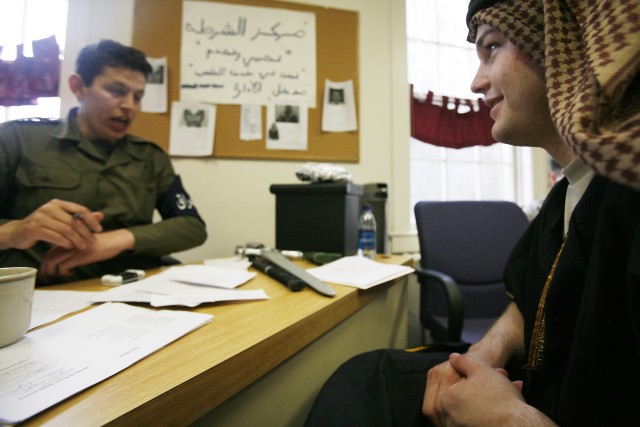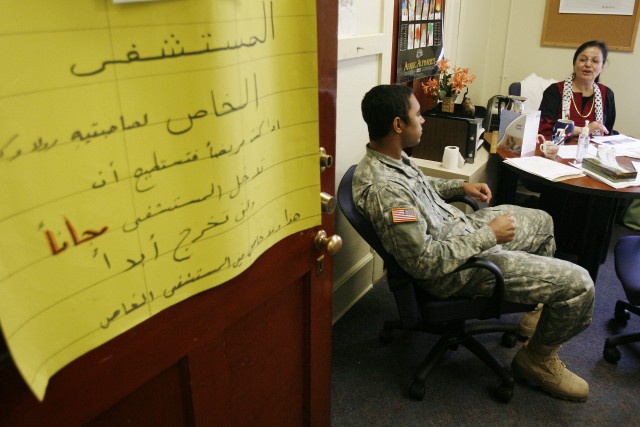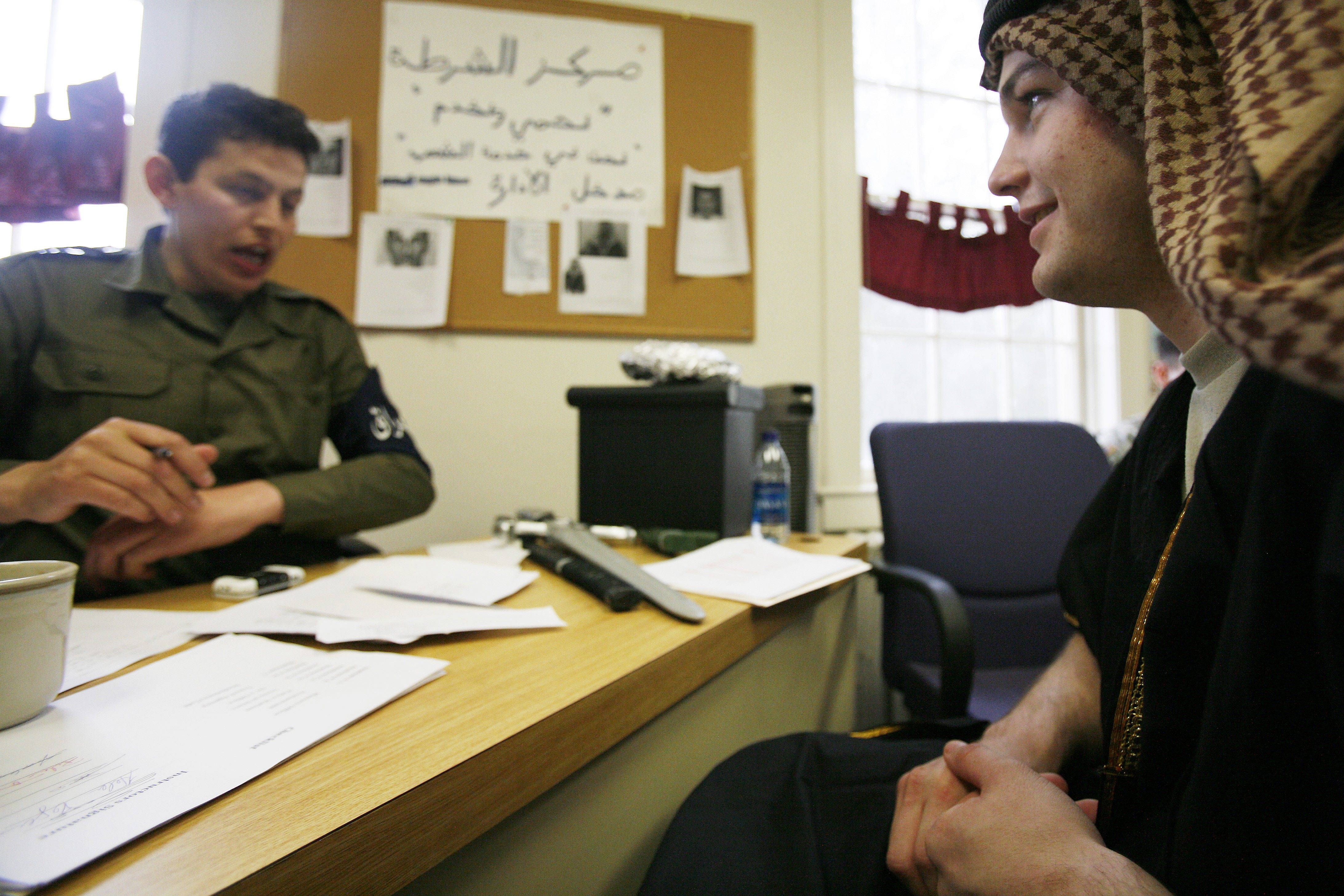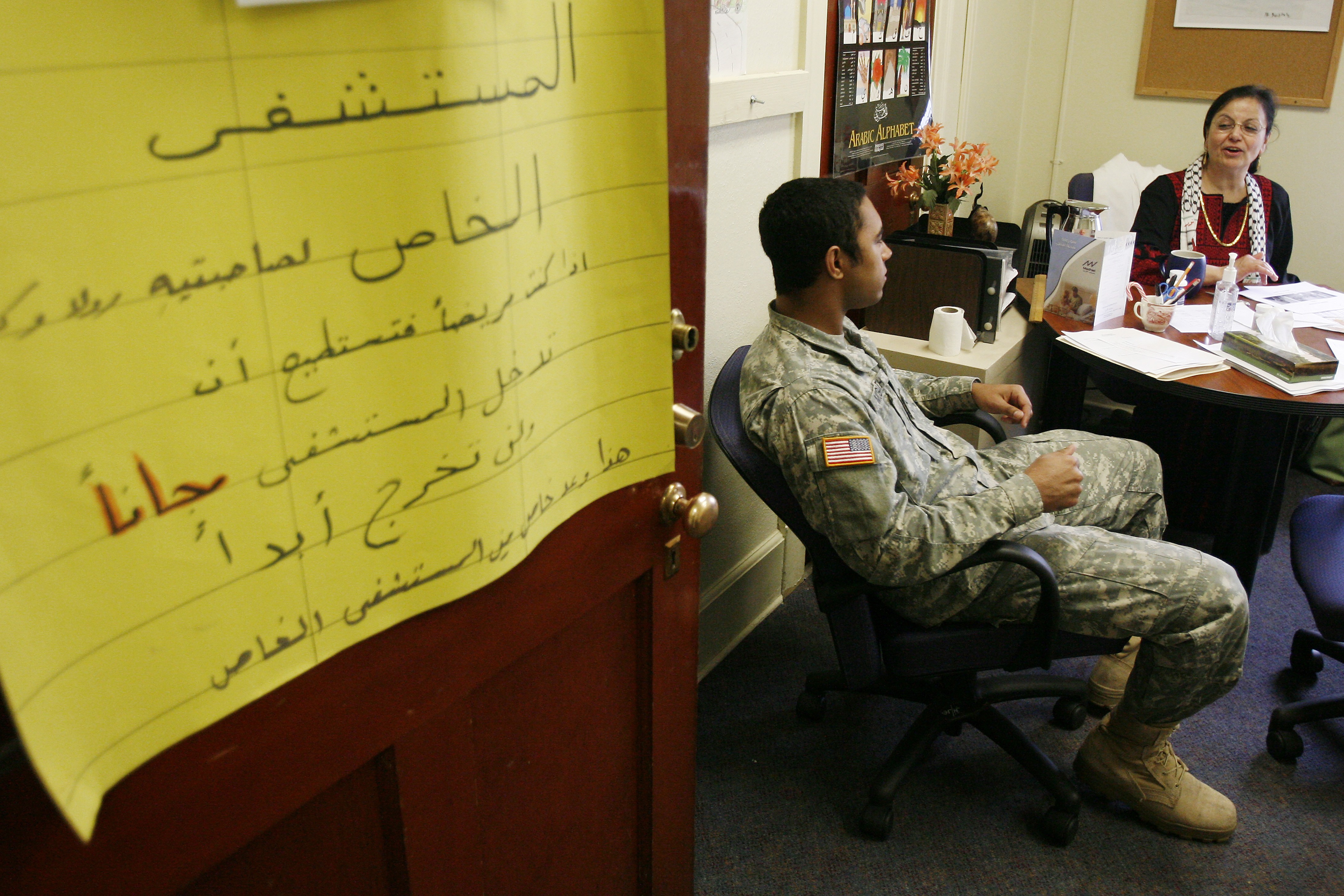FORT LEWIS, Wash. - Think of being hauled into a police station for no particular reason and getting patted down, only to find someone had planted an ounce of marijuana on you.
Talking your way out of your predicament would be tough enough.
Now imagine having to convince a raging police chief that you had been framed - in Arabic.
Private 1st Class Patrick McVay, 2nd Battalion, 3rd Infantry Regiment, found himself straining his wits and Arabic vocabulary last week to get out of his precarious circumstance in a makeshift Iraqi jail on Fort Lewis. Specialist James Slago of 1st Battalion, 17th Infantry Regiment, followed McVay into the police station. Slago, a medic trained in dealing with life-and-death situations, said he found some of the language training among "the most stressful, nerve-wracking experiences" he'd undergone in his Army career.
Scenarios at the Fort Lewis Language Center March 19 ranged from bureaucratic to highly threatening, from filling out mundane paperwork in a mayor's office to calming down the irrational police chief who was summarily locking up foreigners and threatening to throw away the "miftah," that is, key.
In short, it was a day of "Arabic in Action" for Army students at all stages in their language instruction. The Arabic-trained language-enabled Soldiers moved among seven stations - typical shops, offices, clinics and restaurants - designed to test their knowledge of language and culture, and to challenge their ability to think on their feet.
"We're trying to create the atmosphere a Soldier would encounter working with local Iraqis if they happen to walk into a restaurant or book store or have a meeting with a mayor," said Nazim Balawi, instructor and lead curriculum developer in the Arabic Department. "What are the expected greetings and introductions' How do you sweet talk the mayor' Basically, we try to teach them how to get along with the culture (in Iraq)."
After establishing the stations to best evaluate students, Balawi led the Arabic instructors in brainstorming scenarios to test students' speaking skills and creativity. Instructors role-played shopkeepers, a restaurant owner, a medical-clinic admissions official and even a fortune teller.
Students divided into groups of eight and rotated among the stations, but there were scenarios enough that eavesdropping on those ahead of them didn't prepare them when their turns arrived. One student might breeze through the police station after producing his identification papers, while humorless police officers clapped the next one in irons and left him mentally clawing through his vocabulary to express his innocence.
"Some have never encountered this," Balawi said. "It is an eye-opener for some of them."
For all the high seriousness that comes with the prospect of lifelong incarceration in an Iraqi prison, students and instructors thoroughly enjoyed themselves. Even the dour police chief had more mischief than murder in his eye.
"It was fun," said Pfc. Chad Ighani, a tanker with A Company, 5th Battalion, 20th Infantry Regiment, who awaited his turn in a typically long line of patients at the medical clinic. "I could definitely have conversations, but joke around a little bit while still getting the necessary stuff. So it was very light-hearted. It wasn't stressful like I thought it was going to be. It was good."
For most of the students, the day brought a welcome change from classroom instruction while providing valuable training.
"This is a really good test of what we've been learning," said Spc. Andrew Shaver, a member of B Company, 1st Battalion, 23rd Infantry Regiment. "Lots of what we've been doing is class work and it's pretty tedious sometimes. So doing something like this is fantastic."
Shaver said he appreciated hearing the accents and dialects of instructors other than his primary ones, which for him added realism to the event. He said the realistic training gave him a sense that he would be able to function as an LES when he arrives in Iraq.
"It's really interesting to figure out how much you really know," Shaver said. "It gives you a lot of confidence. You don't really realize how much you know till you go out and talk to people."
Don Kramer is a reporter with Fort Lewis' Northwest Gaurdian.




Social Sharing